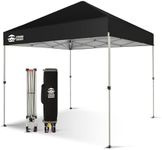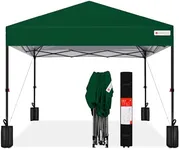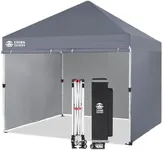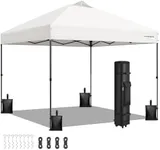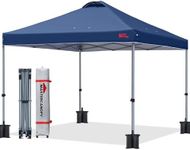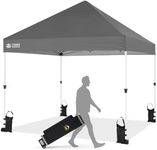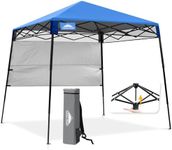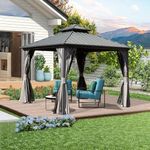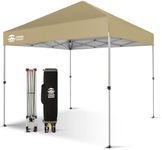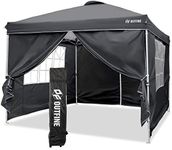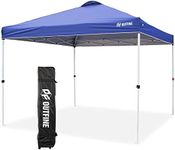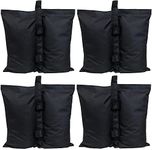Buying Guide for the Best 8 X 8 Canopies
Choosing the right 8x8 canopy can make a significant difference in your outdoor events, whether it's for a backyard party, a market stall, or a camping trip. The key is to understand the various specifications and how they align with your specific needs. By focusing on the right features, you can ensure that your canopy provides the necessary protection, durability, and ease of use. Here are the key specifications to consider when selecting an 8x8 canopy.MaterialThe material of the canopy is crucial as it determines the durability and weather resistance. Common materials include polyester, polyethylene, and vinyl. Polyester is lightweight and water-resistant, making it suitable for light use and easy transport. Polyethylene is more durable and offers better water resistance, ideal for frequent use and moderate weather conditions. Vinyl is the most durable and offers excellent water and UV resistance, perfect for heavy use and harsh weather. Choose the material based on how often you plan to use the canopy and the typical weather conditions you expect to encounter.
FrameThe frame of the canopy provides the structure and stability. Frames are typically made from steel or aluminum. Steel frames are strong and durable, making them suitable for windy conditions, but they are heavier and can be prone to rust. Aluminum frames are lightweight and resistant to rust, making them easier to transport and ideal for wet conditions, but they may not be as strong as steel. Consider the balance between portability and strength based on your usage needs.
Water ResistanceWater resistance is a key feature if you plan to use the canopy in rainy conditions. Canopies are often rated as water-resistant, water-repellent, or waterproof. Water-resistant canopies can handle light rain, water-repellent canopies can handle moderate rain, and waterproof canopies can withstand heavy rain without leaking. Think about the typical weather conditions in your area and choose a canopy with the appropriate level of water resistance to ensure you stay dry.
UV ProtectionUV protection is important if you plan to use the canopy in sunny conditions. Canopies with UV protection can block harmful UV rays, providing shade and reducing the risk of sunburn. Look for canopies with a high UPF (Ultraviolet Protection Factor) rating, which indicates the level of UV protection. A UPF rating of 30 or higher is recommended for effective protection. Consider how much time you will spend under the canopy in direct sunlight and choose a canopy with adequate UV protection.
Ease of SetupThe ease of setup can greatly affect your overall experience with the canopy. Some canopies come with a pop-up design that allows for quick and easy setup, while others may require more time and effort to assemble. If you plan to set up the canopy frequently or by yourself, a pop-up design can save you time and hassle. Consider your ability to set up the canopy and how often you will need to do it when choosing the right design.
WeightThe weight of the canopy affects its portability and ease of transport. Lighter canopies are easier to carry and set up, making them ideal for events where you need to move the canopy frequently. Heavier canopies, while more challenging to transport, often provide better stability and durability. Think about how you will transport the canopy and how often you will need to move it when considering the weight.
VentilationVentilation is important for comfort, especially in hot weather. Some canopies come with vents or mesh windows that allow for better airflow, reducing heat buildup and providing a more comfortable environment. If you plan to use the canopy in warm conditions, look for features that enhance ventilation. Consider the typical weather conditions and your comfort preferences when choosing a canopy with adequate ventilation.
